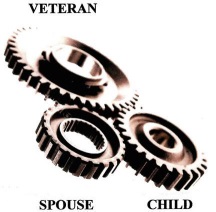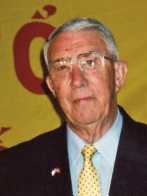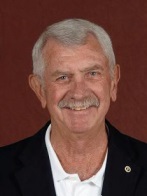former military esprit is certain to return when I motivate them to accept this new and healing life that hyperbaric treatment provides. In this way, I help them return to the confidence gained from graduating from recruit training."
The Sergeant Major goes even deeper as he explains what happens in a way that can only be understood through personal experience. "I help them renew and reflect on the coping skills they had with their combat buddies when a trusted friend had his backside, and he could cope with the worst conditions he's ever experienced. I have to teach them this all over again and help them out of the withdrawal and mental suffering they have regressed into since coming home. When they realize that again, they remember that unique support system."
Pepe also employs EMDR (eye movement, desensitization, and reprocessing). Francine Shapiro, Ph.D., developed this form of psychotherapy to help resolve the development of trauma-related disorders caused by distressing, traumatizing, or disturbing experiences. Pepe explains this methodology in simple terms. “Basically, what happens is that it reconnects the left side of the brain hemisphere to the right hemisphere, so they are working in concert. Dr. Shapiro was walking in the park one day, and she was engaging in lateral eye movements, looking left, looking to the right. Once she finished her walk, the disturbing thoughts she was having disappeared. She then began studying this and developed procedures to achieve results.”
Pepe adds, "Remember when cadence was called in boot camp? I called cadence to my recruits: left, right, left, and platoon halt! Technically, we were all doing EMDR. When we did
physical training, PT, we were calling cadence. And at those moments, we were doing that eye movement, desensitization reprocessing. This is why I feel physical fitness and calling cadence is very therapeutic."
Pepe is always on the lookout to evaluate new promising PTSD therapies. And he never forgets the wife and the family in a veteran's healing process. Using the analogy of gears meshing and interlocking, an interrelationship between a veteran and his family must be adopted and utilized if each is to understand the cognitive process that helps heal post-traumatic stress. Pepe is emphatic on this point. "Many wives reply to this gear analogy by saying, 'I now have my husband back, and the kids also see the change in their father.' It is almost too good to believe."

GETTING IN GEAR: An interrelationship between a veteran and his family must be adopted and utilized if each is to understand the cognitive process that helps heal post-traumatic stress.
HARD CHOICES – REFLECTING ON THE PAST
Reflecting on the past, Pepe uses a harsh but honest approach to bring the veteran back to present reality hopefully. As he describes this procedure, “In those difficult cases when a veteran and family are close to divorce, and the children suffer from the obvious mental condition of the veteran, I use hard questioning in my sessions to help the veteran cope with that renewal. Many veterans lose the love and support of the whole family if they have no post-traumatic stress treatment or mental help.”
Pepe contends that his techniques in counseling get their attention fast. Along with the therapeutic healing, he teaches them "to be the person they once were... always continuing to be the warrior... but again assuming the responsibilities of being a warrior." •
ABOUT THE AUTHORS

Bob Fischer is a 1955 Naval Academy graduate and career Marine Corps officer who retired in 1982. He was Captain of Marines on the U.S.S. Saint Paul CA73, the 7th Fleet Flagship, from 1961 to 1963, when he studied four guerrilla wars in Southeast Asia and obtained the Malaya Jungle School Syllabus at Johore Bahru. He used the syllabus to establish the 2nd Marine Division Counter-guerrilla Warfare Center at Camp Lejeune, North Carolina. 20,000 Marines, Navy Seal, and Special Forces Teams were also trained there. His CIPA award-winning book Guerrilla Grunt documents this experience. He was also a task force advisor (Covan) for the Vietnamese Marine Corps from 1966 to 1968 and wrote his book Covan about this experience. From 1977-to 80, as Commander of the Defense Electronics Depot, Kettering, Ohio, his workforce set the Defense Logistics Agency's all-time performance record. For this, he was awarded the Defense Superior Service Medal. In 2010, he attended a presentation by the Rocky Mountain Hyperbaric Institute and its nonprofit Rocky Mountain Hyperbaric Association for Brain Injuries, where he learned about their recently established Healing Our Heroes fund. His involvement with other Marine veteran organizations motivated him to become a Veteran's Advocate for the clinic. Joining Grady Birdsong, they filmed the first veterans who received hyperbaric oxygen therapy (HBOT) in the original Boulder clinic and raised funds by presenting the unique HBOT story to groups in the Denver area. He was named Colorado American Legion's Veteran Advocate of the Year for his efforts in 2012.

Grady T. Birdsong was raised in Kansas before enlisting in the United States Marine Corps in 1966. After serving two tours in the Northern "I-Corps" region of Vietnam during Tet of 1968 and the DMZ in 1969, he traveled the world, enjoying a successful career in engineering, business development, marketing, and technical sales in the telecommunications/data systems, information technology systems, and the optical and fiber systems test industries. Additionally, Grady is the author of A Fortunate Passage, To the Sound of the Guns, and Echoes of Our War, with nine EVVY awards from the Colorado Independent Publishers Association (CIPA). In 2010, Grady and Bob Fischer became Marine Corps Veteran Advocates for the Rocky Mountain Hyperbaric Institute, at a time when Ryan Fullmer and Eddie Gomez were struggling to establish their brand new HBOT clinic in the industrial area of Boulder, Colorado. His early filming of the clinic's first successful TBI-PTSD veteran's treatment generated the first significant donor funds, earning $135,000. These funds enabled the HBOT clinic to move to its current site in the Professional & Medical Center in Louisville, CO, and provide a nearby home for the forty-day treatment of out-of-town veterans. Now retired, Grady lives with his wife, Pamela, in the Denver area, where he enjoys his grandchildren and spends his time writing, volunteering, and hunting big game. Grady is a graduate of Regis University in Denver, Colorado. Both authors have an ongoing commitment to veterans of all wars and continue to advocate, inform, educate, and raise nonprofit funds. Both remain Semper Fidelis.